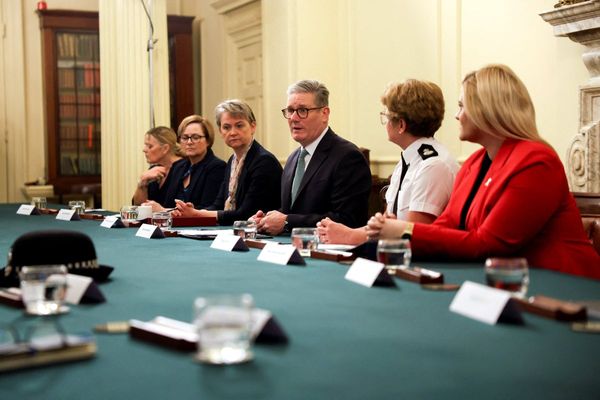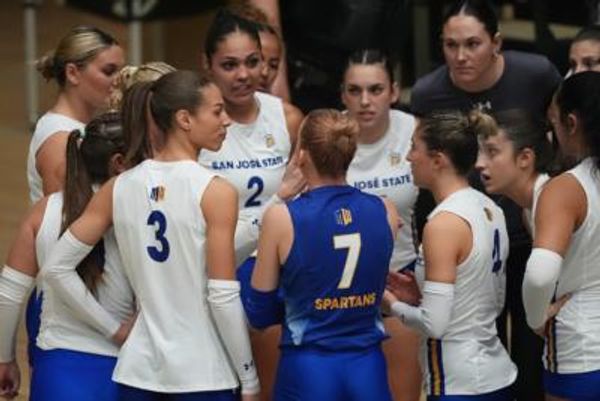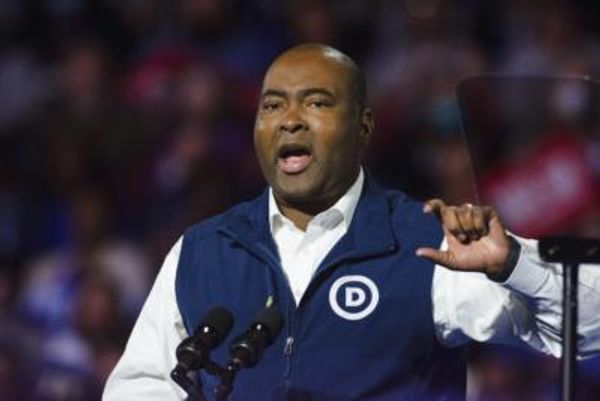WASHINGTON _ U.S. Sen. Roy Blunt said Tuesday that there will be restrictions to public and press access during President Donald Trump's impeachment trial, including periods when the Senate chamber is cleared of reporters.
The bulk of the trial will be broadcast on television. But during certain periods of debate, the Senate will go into closed session under its impeachment rules, the Missouri Republican told reporters.
"I mean closed session. I mean there will be nobody there but senators and essential staff. No cameras, no C-Span, no coverage, what the rules say happened last time," said Blunt, the Senate Rules chairman and a member of Senate GOP leadership, referring to restrictions in place during former President Bill Clinton's 1999 trial.
"Now 67 of us could change that, but 67 of us don't appear inclined to change anything."
As Senate Rules chairman, Blunt is in charge of enforcing rules related to press and public access when the Senate holds the third presidential impeachment trial in the nation's history.
Security concerns will also limit public and press access to the Capitol during the trial, Blunt said.
The specific rules have not yet been issued, but Republican leaders have been in discussion in recent days with organizations representing newspaper and broadcast reporters in the Capitol.
It's expected that there will be restrictions on press movement in the Capitol, which will limit the ability of reporters to question senators. Electronic devices will be barred from the Senate chamber and restricted in other areas of the Capitol.
The Standing Committee of Correspondents, which advocates on behalf of the congressional press corps, decried the proposed rules in a letter to Senate leadership Tuesday.
"Capitol Hill is one of the most accessible places in Washington, but the proposed restrictions exceed those put in place during the State of the Union, Inauguration Day or even during the Clinton impeachment trial 20 years ago," the letter said.
"These potential restrictions fail to acknowledge what currently works on Capitol Hill, or the way the American public expects to be able to follow a vital news event about their government in the digital age."
The committee had sought an exemption from the long-standing rule prohibiting the use of laptops by reporters in the Senate chamber during the trial. Instead, Senate leadership plans to install a magnetometer in the press entrance to the chamber during the trial to prevent the use of electronic devices.
The committee said the use of a magnetometer won't help safety and instead "gives the impression that it is being done mostly to protect senators from the bright light of the public knowing what they are doing in one of the country's most important moments."
Blunt said that despite limitations on the use of technology and movement by reporters, partly due to Chief Justice John Roberts' presence during the trial, the news media will still have substantial access.
Blunt said the Senate's impeachment rules require it to conduct certain debates under a closed session, and this rule has prompted some of the restrictions.
"And part of the decision about access will be driven by how quickly you can clear the room, so you can have that debate and get people back into the room so you can move forward."
The restrictions will stand unless a two-thirds majority votes to loosen the rules. Blunt suggested this would be impossible to accomplish in the current Senate, but did not directly say how he would vote in this scenario.
"We're not going to have 67 votes. As you all know, I'm always for press access as you can tell right now," Blunt told a crowd of reporters. "Would I be standing here if I was opposed to press access?"







